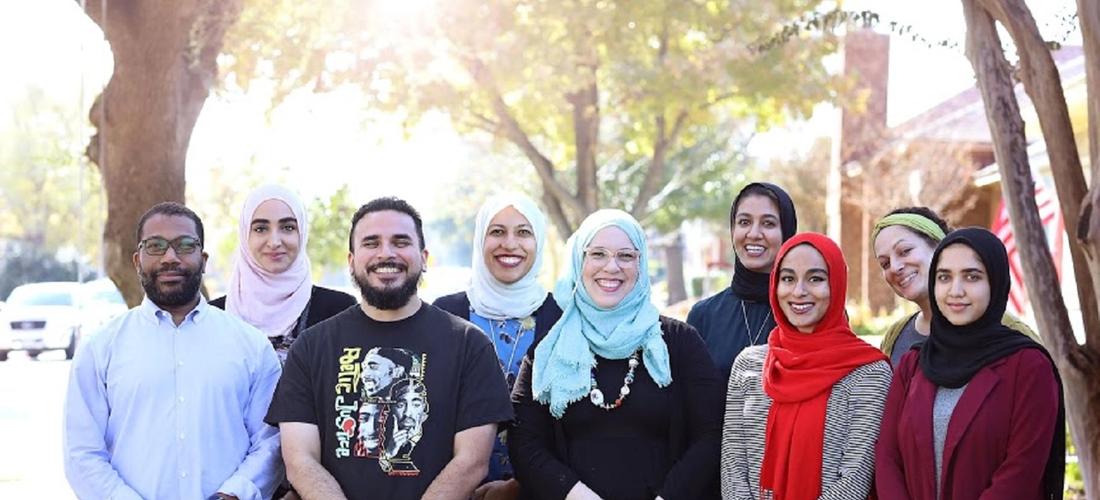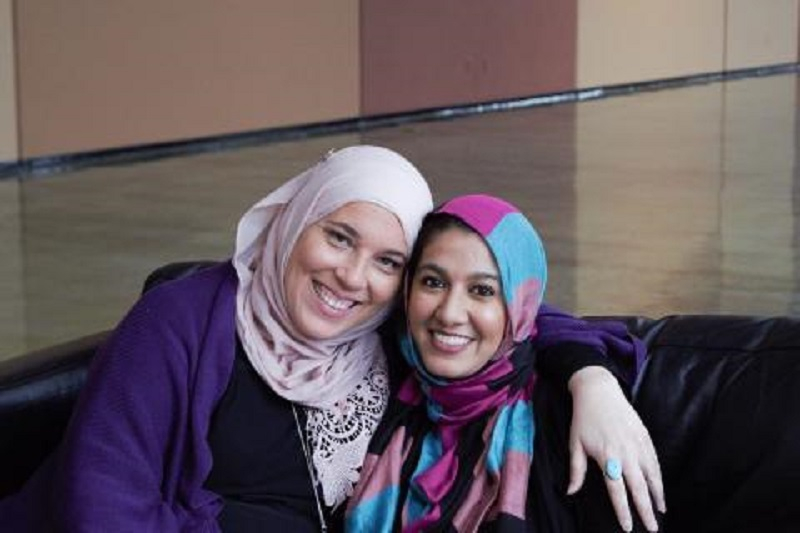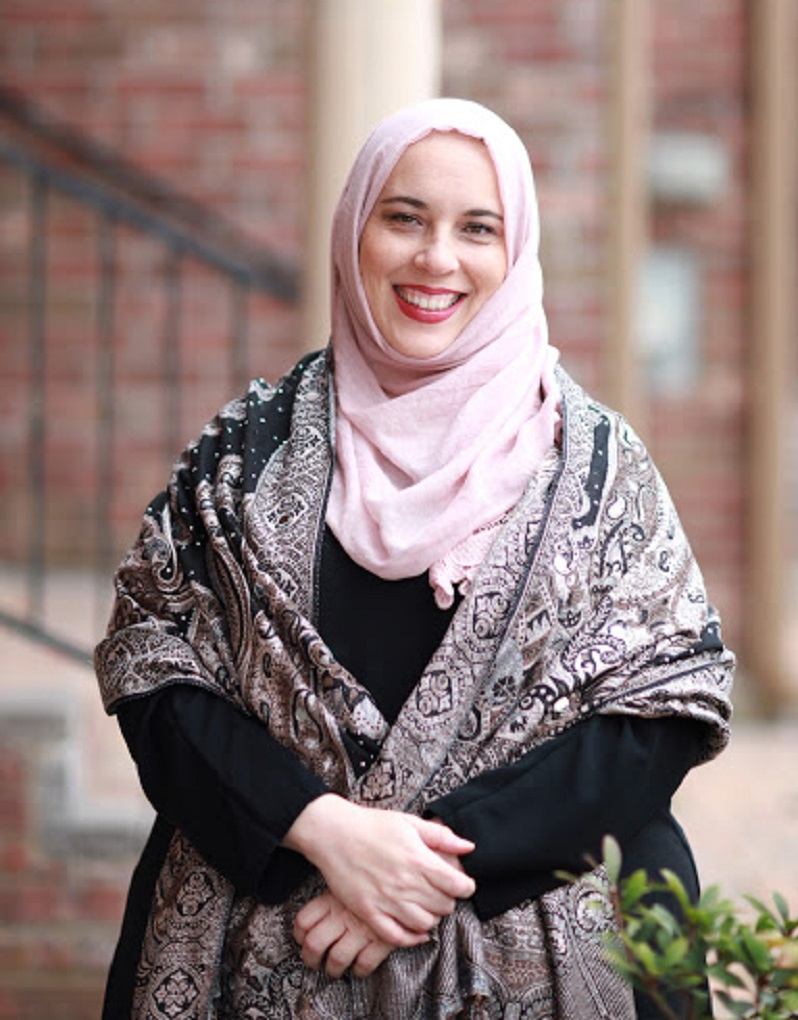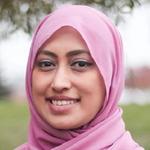Meet Alia Salem – Holding Religious Leadership Accountable in Sexual Abuse Cases
Community
|
Sep 21, 2020
|
5 MIN READ

Alia Salem, in the light blue hijab and glasses, stands in the middle of her FACE team. Image source: Alia Salem
In 2017, Alia Salem was approached by a woman who she knew from her local mosque. She said her daughter was groomed and counseled since the age of 13 by a local imam from the Islamic Center of Irving, one of the largest masajid in North Texas. According to the mother, the imam had sexually assaulted her daughter in a hotel at 18 and then abandoned her. The mother told Alia that she needed a woman to advocate for her family.
“That’s how FACE was born,” she says.
Alia shared the story with friend and attorney Huma Yasin. They went on to cofound of Facing Abuse In Community Environments (FACE), an organization working to hold religious leaders accountable for spiritual, sexual, physical and financial abuse – thought to be first of its kind in the United States.
As a survivor of childhood sexual abuse and intimate partner violence as an adult, Alia knows far too well what happens when people seek out power and control through violence against women.
With the Irving case, FACE first informed the masjid leadership, leading to a forced resignation of the imam and 2,000 letters being sent across the nation to not rehire him, which came to no avail. The imam was hired by another masjid, that too only a few miles away. Coupled with the #metoo movement, the incident came full fledged into the courtroom a year later, leading to a $2.55 million lawsuit and the imam’s downfall.
Finding and Holding Onto Faith
As a daughter of an Egyptian immigrant father and American mother from Texas (who converted years later) Alia grew up looking for ways to connect with her religious faith. Many of the Islamic customs and traditions, such as going to masjid on Sundays and praying together as a family, slipped away after her father passed away when she was 11. “When he died that kind of [ended] in many ways, but we had some sort of grounding.”
During her senior year of high school she felt moved to “make conscious, mindful steps to practice my faith.” This led her to marry young, at the age of 19 to “stay Muslim," because she was told by an aunt that she’d be “excommunicated from the religion” if she didn’t marry a Muslim. She met her ex-husband in Egypt in 1999 while visiting overseas during a gap year to work at her uncle’s hotel over the summer. That trip extended from two to six months.
She came back to the United States and worked for five years before beginning college, registering at the University of Texas at Arlington, where she earned a bachelor’s degree in Interdisciplinary Studies with focuses in Communications, Sociology and Religion/Culture. Part of her reason for attending the college was to meet Muslims, to hold onto her faith. “I didn’t know any Muslims growing up. It was a hit or miss sort of situation,” she says.
First, she joined the Middle Eastern Students’ Association with religiously diverse members and then the Muslim Students’ Association, where she, “really started practicing [her faith],” and felt she belonged. During that time, seeking social justice was deeply instilled during halaqas, and Alia began making her voice heard in interfaith circles.
Immersed in Social Justice Advocacy Work

FACE cofounders Alia Salem and Huma Yasin (L to R); image source: D magazine and Amina Khan.
Alia is not a stranger to social justice work. She served as the Executive Director of the Council on American-Islamic Relations, DFW Chapter, in Texas from 2013-2017. She’s been working for 15 years with interfaith groups such as the REAL City, a racial justice fellowship for young professionals, and serves on the North Texas Fair Housing Center and Dallas Peace and Justice Center boards.
Since FACE’s inception, people have submitted 80 incident reports – 30 of which were accepted to be investigated; 26 are open cases. The work entails private investigations followed by public reports that serve as a public resource similar to a sex offender registry.
“Our faith does not cover abuse,” says Alia, referring to Muslim communities advocating for 70 excuses of a believer before holding them accountable, which she says applies to personal sins. “When rights of others are taken, scream from the rooftops until justice has been pursued.”
The abuse hasn’t slowed down, she says, but the pandemic has stalled the work, along with funding being redirected to nonprofits which are working with COVID relief.
A Full-Circle Moment
Alia says before FACE, the infrastructure of holding religious leaders accountable – through educating communities, assisting victims and preventing abusers to open up shop elsewhere – did not exist. The most one could do is sue the abuser. Without public knowledge about abusers, other community members are vulnerable to becoming victimized. FACE is documenting abuse and offenders for public knowledge through published reports to prevent more victims from falling prey to their behavior. FACE focuses on development and training to identify these types of cases.
“The biggest challenge we have is to create a community and culture shift,” Alia says.
This means holding leadership and institutions to “become victim-oriented rather than giving abusers a benefit of doubt” and creating safe spaces.
She says shariah commands us to protect human life. “If our institutions are covering up and not protecting human life, that’s not ihsan. Allah will not change the conditions of a people till they change what is in themselves. This is how I contribute to that to change our actual condition.”

Alia says FACE will be publishing reports soon to highlight historical transgressions with victim stories. She says for now masjids comply with investigations when it threatens to negatively affect their bottom line or to avoid legal trouble.
“When you provide safety and justice for your community ... and do things in order to please Allah (S) to protect the victims, widows, orphans and wayfarers, the least of us – most vulnerable – you will not impact the bottom line. It will do the reverse. When you are victim- and justice-centered, you will be the ‘beacon of hope and justice’ for your community, and they will invest in you like they’ve never before,” she says.
Alia hopes to replicate this model in other decentralized communities after building it up in the Muslim community. She was inspired by researching the Catholic sexual abuse coverup and fallout, documented in the movie “Spotlight.”
“My whole life was preparing me to do this [work] ... It’s the hardest thing I’ve ever had to do,” she says.
The nature of the work makes one second-guess each step and question if it’s the right thing to do, says Alia. “Whether you are intending to...you are upending people’s lives and communities. It’s hard for people to swallow. [But], it's never been more necessary.”
She hopes FACE can survive COVID-19, that they can grow the organization and “obtain funding that creates sustainable self-sufficiency.” For now they have a two- member team and several volunteers. “Victims must wait so long for us to get solid product (reports/solving the case) ... because of our limitations in resources and staff power [and] … not being able to collect the critical data needed.
“We have asked Allah [(S) to help every step of the way, and He has not forsaken us,” she says. “Seeking Allah’s (S) pleasure in doing this. Seeking his acceptance, I think he will continue to provide for us, Insha’Allah.”
Subscribe to be the first to know about new product releases, styling ideas and more.
What products are you interested in?

